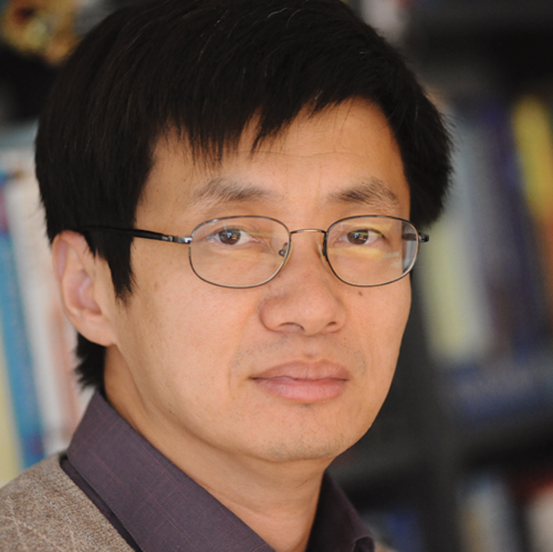即可将网页分享至朋友圈
由信息与通信工程学院主办的“通信论坛”本次邀请到IEEE Fellow、美国哥伦比亚大学Xiaodong Wang教授来校交流。具体安排如下,欢迎广大师生参加!
一、主 题:Tensor Completion–Fundamental Limits, Efficient Algorithms, and Privacy
二、时 间:2018年7月3日(周二)11:00
三、地 点:清水河校区科研楼C110
四、主讲人:Xiaodong Wang(IEEE Fellow,Columbia University)
五、内容简介:
The availability of numerous affordable and deployable sensors of various types has enabled the collection of massive sensing data on the same object or phenomenon from multiple perspectives. Tensors are natural multi-dimensional generalizations of matrices and have attracted tremendous interests in recent years. Low-rank tensor completion finds applications in many fields. A completion is a tensor whose entries agree with the observed entries and its rank matches the given rank. We analyze the manifold structure corresponding to the tensors with the given rank and define a set of polynomials based on the sampling pattern and tensor decomposition. Then, we show that finite completability of the sampled tensor is equivalent to having a certain number of algebraically independent polynomials among the defined polynomials. Our proposed approach results in characterizing the maximum number of algebraically independent polynomials in terms of a simple geometric structure of the sampling pattern, and therefore we obtain the deterministic necessary and sufficient condition on the sampling pattern for finite completability of the sampled tensor. Moreover, assuming that the entries of the tensor are sampled independently with probability p and using the mentioned deterministic analysis, we propose a combinatorial method to derive a lower bound on the sampling probability p, or equivalently, the number of sampled entries that guarantees finite completability with high probability.
Moreover, we present a new approach to low-rank tensor completion when the number of samples is only slightly more than the dimension of the corresponding manifold, by solving a set of polynomial equations using Newton’s method. In many applications, sampled data are sent to a central cloud server to complete the tensor completion task. However, revealing data to the server raises privacy concerns. To that end we propose a novel framework for privacy-preserving tensor completion, called homomorphic tensor completion, that is relatively easy to implement in practice.
六、主讲人简介:

Xiaodong Wang received the Ph.D degree in Electrical Engineering from Princeton University. He is a Professor of Electrical Engineering at Columbia University in New York. Dr. Wang's research interests fall in the general areas of signal processing and communications, and has published extensively in these areas. Among his publications is a book entitled "Wireless Communication Systems: Advanced Techniques for Signal Reception", published by Prentice Hall in 2003. His current research interests include wireless communications, statistical signal processing, and genomic signal processing. Dr. Wang received the 1999 NSF CAREER Award, the 2001 IEEE Communications Society and Information Theory Society Joint Paper Award, and the 2011 IEEE Communication Society Award for Outstanding Paper on New Communication Topics. He has served as an Associate Editor for the IEEE Transactions on Communications, the IEEE Transactions on Wireless Communications, the IEEE Transactions on Signal Processing, and the IEEE Transactions on Information Theory. He is a Fellow of the IEEE and listed as an ISI Highly-cited Author.
信息与通信工程学院
2018年7月1日
编辑:董虹宇 / 审核:林坤 / 发布:陈伟


